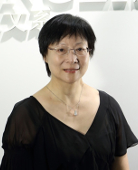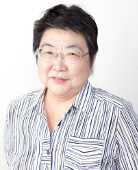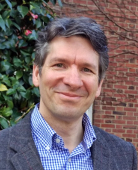You are here
CUE ESP Symposium 2019 - Plenary Speakers
JALT CUE and BizCom ESP Symposium 2019
For more information: espsymposium@gmail.com

Researching and teaching professional communication in English: Insights from Hong Kong
Winnie Cheng, Adjunct Professor and formerly Director of Research Centre for Professional Communication in English (RCPCE), Department of English, The Hong Kong Polytechnic University, Hong Kong
Abstract: The talk gives an overview of major collaborative and interdisciplinary projects with the pillar industries in the Hong Kong economy, such as financial services, health care, surveying, construction engineering, and tourism, that the Research Centre for Professional Communication in English (RCPCE) at The Hong Kong Polytechnic University has conducted in the past ten years. It describes the objectives and outcomes of some of the projects as well as methods employed to collect and analyse instances of professional communication, in particular the procedure adopted to compile profession-specific corpora, such as the Hong Kong Engineering Corpus and Hong Kong Financial Services Corpus. Other methods of data collection include data-collection log-sheet (DCL) method, surveys, shadowing, and site observation. The implications of these collaborative projects with the industries in Hong Kong in ESP pedagogies will be exemplified and discussed.
Winnie Cheng is Adjunct Professor and formerly Director of Research Centre for Professional Communication in English (RCPCE), Department of English, The Hong Kong Polytechnic University. She is a Founding Fellow of the Hong Kong Academy of the Humanities. Her research interests include ESP, intercultural pragmatics and communication, corpus linguistics, conversation analysis, critical discourse analysis, lexical semantics, metaphor studies, and discourse intonation. Her book publications include Enhancing students’ professional competence and generic qualities through writing in English across the curriculum (2014), Exploring corpus linguistics: Language in action (2012), A corpus-driven analysis of discourse intonation (2008), and Intercultural conversation (2003). She has published more than 100 journal articles and book chapters.
E-mail:winnie.cheng@polyu.edu.hk

Transcending ESP Boundaries
Judy Noguchi, Professor emerita of Kobe Gakuin University where she was the start-up Dean of the Faculty of Global Communication, Japan
Abstract: English for Specific Purposes began as a way of teaching nonnative English speakers how to function in a world in which English had become the lingua franca. Over the past half a century, ESP practitioners and researchers have elevated this approach to teaching language into a field of study enriched by theory and practice. What this talk will propose is taking the ideas and methods garnered from all of this work to teach even native English speakers how to communicate better in professional situations. The need for good communication skills is especially urgent in the sciences, where the dissemination of misinformation over the Internet and SNS is causing concern. How to reach audiences outside your field of specialty is increasingly becoming important. Scientific societies have begun discussions on the evolution of traditional genres and the consideration of how narratives could be effectively used. How the concepts and methods of ESP can be used will be illustrated with examples from graduate school courses in scientific communication in science, engineering and medicine.
Judy Noguchi is Professor emerita of Kobe Gakuin University where she was the start-up Dean of the Faculty of Global Communication. She currently is an adjunct lecturer at Kobe Gakuin University, Osaka University Graduate School of Engineering and of Medicine, and Kobe University Graduate School of Engineering and of Medicine. She continues to be involved in KAKEN research projects related to ESP, such as developing tools to aid the acquisition of specialized vocabulary and the development of genre awareness in language teaching. She has been involved in the production of numerous teaching materials, including ESP textbooks for students majoring in science, engineering and medicine. B.A./B.S., chemistry, University of Hawaii; M.Ed., TESL, Temple University; Ph.D., applied linguistics, University of Birmingham.
E-mail:jnoguchi@gc.kobegakuin.ac.jp

Introducing English for Specific Purposes: A Contemporary View
Laurence Anthony, Professor of Applied Linguistics at the Faculty of Science and Engineering, Waseda University, Japan
Abstract: English for Specific Purposes (ESP) is perhaps the most influential of all language teaching approaches in academic and workplace settings with over 50 years of research and practice supporting its development. Traditional views of ESP have tended to position ESP courses on the fringes of mainstream language programs, where they are managed by ESP 'practitioners' who have to work largely in isolation. In such settings, ESP practitioners will face a multitude of challenges, especially when the learners are from specialist disciplines quite different to their own. One challenge is finding suitable texts that can serve as models of the target language. Another challenge is analyzing those texts in order to identify their characteristic and sometimes unique features. Further challenges emerge when new discipline-specific language has to be presented to learners as it will not always be clear which features should be targeted or how should they be introduced.
In this talk, I will begin by presenting a contemporary view of ESP that takes account of the various changes in English language teaching that have recently emerged. In particular, I will discuss how the (re)structuring of academic and workplace language programs allows greater opportunities for ESP researchers, course designers, and instructors to work together to create ESP programs that meet the broader needs of learners. Next, I will explain how recent technical developments can help address many of the challenges involved in creating ESP courses and programs. As part of this explanation, I will demonstrate various new software tools for creating discipline-specific corpora, identifying prototypical texts, and analyzing target language both inside and outside the classroom. At the end of the talk, I will discuss further ways that technical developments are beginning to dramatically affect ESP research and practices and suggest possible future directions for the field as a whole.
Laurence Anthony is Professor of Applied Linguistics at the Faculty of Science and Engineering, Waseda University, Japan. He has a BSc degree (Mathematical Physics) from the University of Manchester, UK, and MA (TESL/TEFL) and PhD (Applied Linguistics) degrees from the University of Birmingham, UK. He is a former Director and the current coordinator of graduate school English in the Center for English Language Education in Science and Engineering (CELESE). His main research interests are in corpus linguistics, educational technology, and English for Specific Purposes (ESP) program design and teaching methodologies. He serves on the editorial boards of various international journals and is a frequent member of the scientific committees of international conferences. He received the National Prize of the Japan Association for English Corpus Studies (JAECS) in 2012 for his work in corpus software tools design.
E-mail:anthony@waseda.jp
Theme by Danetsoft and Danang Probo Sayekti inspired by Maksimer
